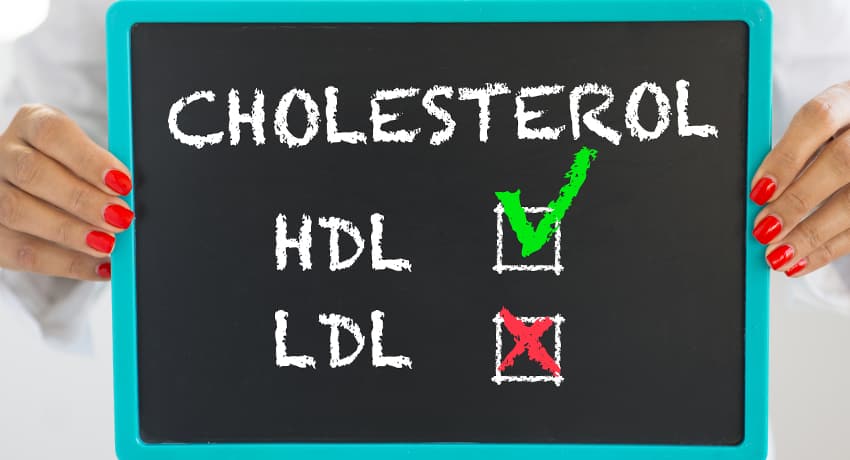
Our bodies make and use cholesterol to aid in digestion, and to produce vitamin D and hormones. Cholesterol is a waxy substance that is found in many of the foods we eat, such as egg yolks, fatty meats, dairy products, and saturated oils. Too much cholesterol can cause plaque to build up on the walls of your arteries which can narrow blood flow. This may eventually lead to coronary artery disease or other health complications. Simbo Chiadika, MD, a cardiologist with UT Physicians, explains why.
What’s the difference between HDL, LDL, and VLDL?
Cholesterol is a lipoprotein made of fat and protein. It is divided into three categories: high-density lipoprotein (HDL), low-density lipoprotein (LDL), and very low-density lipoprotein (VLDL), and each impacts your body differently. “HDL is considered ‘good’ cholesterol as it helps move bad cholesterol from other parts of your body to your liver for removal. LDL is considered ‘bad’ cholesterol because high levels can lead to the buildup of plaque in your arteries,” said Chiadika. “VLDL is considered ‘bad’ cholesterol as well but it mainly carries triglycerides, the most common type of fat in your body. Excess levels can also contribute to health complications such as heart disease.”
What are some things that can affect my cholesterol levels?
“There are a variety of factors that can affect your cholesterol. While some things are unavoidable like age and family history, making heart-healthy lifestyle changes such as balanced meal plans, regular exercise, and weight management goes a long way to improving your long-term health,” said Chiadika.
- Diet – Foods rich in saturated fat or trans fat have the biggest impact on your blood cholesterol levels. Consider healthier options to help reduce intake of these types of fats.
- Obesity – Being overweight raises your triglycerides levels and lowers your HDL. Try to exercise for at least 30 minutes regularly.
- Smoking – This not only lowers your HDL level but also raises your LDL level. Eliminate this habit or look into a smoking cessation program.
- Age – Cholesterol levels tend to rise as we age. Although less common, children and teens can also have high levels as well.
- Family history – High cholesterol can run in families. In most cases, children with high cholesterol have a parent who also has elevated levels of cholesterol.
How do I know if my cholesterol is too high?
There are no signs or symptoms when it comes to high cholesterol. The only way to screen for it is through a blood test called a lipoprotein profile which measures your total cholesterol, LDL, HDL, and triglyceride levels. “Everyone over the age of 20 should get screened for cholesterol levels every five years. Many people do not know they are affected until a life-threatening event occurs,” said Chiadika.
When screening for cholesterol, the numbers below are recommended for an average adult:
- Total cholesterol level – less than 200 milligrams per deciliter (mg/dL) is best; 240 mg/dL is considered high.
- LDL cholesterol levels – less than 100 mg/dL is best, but this depends on your risk for heart disease.
- HDL cholesterol levels – 60 mg/dL or higher reduces your risk for heart disease.
- Triglycerides – less than 150 (mg/dl) is best.
For children, the numbers below are acceptable:
- Total cholesterol level – less than 170 mg/dL; over 200 mg/dL is high.
- LDL cholesterol levels – less than 110 mg/dL is best; over 130 mg/dL is high.
Treatment options to lower cholesterol vary based on each individual person’s needs, risk factors, and goals. Speak with your doctor to determine what works best for you.
UT Physicians is the clinical practice of McGovern Medical School at The University of Texas Health Science Center at Houston (UTHealth).



